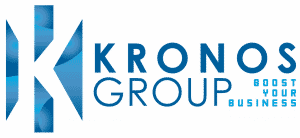The role of cost reduction consulting companies in global business growth

Summary
Cost reduction is an important yet tedious business adjustment for businesses to grapple with. Cost reduction achieves several business objectives, mainly concerned with sales revenue maximisation and reaching profit margins. However, to achieve these financial targets, cost optimisation must be realised. Since cost reduction can help achieve many business targets and is a commonly set objective, it provides a significant number of benefits to global business growth as well. Businesses aim for cost reduction in many ways and implement several strategies to do so. With growing competition, evolving needs, and extreme economic volatility, it is best to leverage the expertise of a cost-reduction consultant to achieve these goals.
Every business pursues lowered costs to sustain higher profits and meet financial objectives. Cost reduction is an important consideration and defines the ability of a company to ensure continuity without sacrificing quality or quantity.
Cost reduction consulting companies cater to this achievement of financial, stakeholder value maximisation, and spend optimisation objectives.
What does cost reduction achieve?
Solvency is the bread and butter of running a business. It is important to moderate costs in line with business needs.
Cost reduction helps achieve a wide range of business objectives—allowing them to make profits, gain a competitive edge, increase brand awareness, and enable long-term expansion.
Achieving objectives
All businesses target to achieve financial objectives such as sales revenue maximisation, profit maximisation and expenditure to income maximisation. With cost reduction initiatives in place, a business can work towards tangible targets.
Gaining a competitive edge
With cost reduction, a business can more easily win consumers than competitors. Since businesses witness a fall in costs, they can pass this benefit to consumers. This increases sales and profits, contributing to a better competitive advantage.
Enabling long-term expansion
When costs are reduced, businesses can establish and prioritise their long-term objectives. After all, cost reduction is likely to contribute to higher financial availability that can be utilised towards business or stakeholder enhancement.
Improving financial standing
When a business prioritises cost reduction, it is likely to see an improved financial position and increase the day-to-day cash solvency. The improved financial position enhances the firm’s approach to decision-making and resource allocation.
Ensuring business continuity
It is important for businesses to maintain a solid cash flow to prevent business stagnation. This can be facilitated by the improved accountability and security it provides—allowing businesses to acquire external finance in times of need.
How do cost-reduction consulting companies enable global business growth?
With uncertainties in the business environment, businesses must have cash in hand to bounce back from curveballs. Cost reduction and sales revenue and profit maximisation are very common objectives placed by firms, which in turn has resulted in global business growth.
Cost reduction consulting companies have played a key role in enhancing the already growing initiatives in businesses for spend optimisation, resulting in near-perfect cost reduction strategies.
Cost reduction backed by consultants has also resulted in an intense amount of fierce but healthy competition in business. This is likely to increase choice for consumers, who will have an expanded scope of needs and wants owing to competitors’ offerings. This also fuels innovation, creativity, and integrity in business.
Additionally, cost reduction generally associates closely with economies of scale—resulting in a range of business benefits, such as increased supply, efficiency, and product improvements. In the long run, it also offers higher quality, lower costs, and elimination of inefficiencies.
How do businesses aim for cost reduction?
Cost optimisation is vital for long-term survival and as such, it is not a temporary solution. It must be adapted to market and economic conditions, continuously improved, and communicated.
Businesses aim for cost reduction in many ways, such as:
- Cashflow forecasting and budgeting
Reviewing present budgets and cash flow helps understand the business’s financial standing. This allows businesses to prioritise essential expenses, and eliminate or minimise expenses that are not critical—easing the decision-making process for the next financial term.
- Business process automation
Automation not only minimises the need for manual labour but also reduces errors, resulting in much more cost-efficient operations. Businesses can experience increased productivity, enhanced returns on investment, and overall growth in terms of output quality and quantity.
- Stakeholder negotiation
Negotiating with stakeholders for discounts or layoffs on resource costs allows businesses to reduce overheads on operations. Depending on the nature of the business, businesses can also reduce fixed and variable costs through initiatives like remote working or hybrid working.
- Cost reduction consulting
Leveraging the expertise of cost-reduction consulting companies can help businesses navigate costs through data-backed decisions. Financial consultants are experienced and equipped with industry knowledge, allowing businesses to benefit from informed insights.
Why employ a cost reduction consultant
Despite the importance businesses place on cost reduction, 49% of cost reduction initiatives fail.
When making cost reduction decisions, it is important to consider the nature of the business, competitive environment, ability to negotiate with stakeholders, and economic volatility.
The role of a cost reduction consultant cannot be overstated here, offering businesses incomparable abilities to optimise their spending and achieve their financial objectives, such as sales revenue maximisation, profit maximisation and expenditure to income maximisation.




